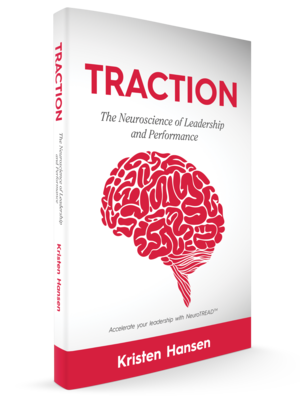If you are feeling overloaded and fatigued, you are not alone. The prospect of too much or too little on your plate can leave you feeling overwhelmed or underwhelmed with daily life, adding to what psychologists term your “allostatic load”, the mental and physical effects of exposure to stressors. Want to get rid of brain fog? Take a walk outside, amidst nature and it will surely relax your mind, help you to get into a reflection mode more easily, produce more insights and it will certainly lessen the brain fog you might be experiencing having worked all day at your desk.
I stumbled upon this great article, that talks a great deal about some of the proven strategies that help clear your mind and bring more clarity and focus we need so that we can perform our best every day. Some of the key points from this article were:
1. Take a walk:
A brief walk outside, in the open air, can have a powerful impact on your thinking and positivity.
The article states, that a few years ago, researchers at Heriot-Watt University attached portable EEGs (electroencephalograms) to the scalps of volunteers to study their brain wave patterns as they walked in different environments. Their results showed that walking in green, leafy spaces lessened brain fatigue and that the walkers’ brains were mentally quieter when they passed through parkland — an effect of nature engaging the brain in an “effortless” way that allows scope for reflection.
2. Don’t worry, be happy:
Worry is the scourge of a productive mind. Research by Dr. Colette Hirsch, a reader in cognitive clinical psychology at King’s College London, has shown that operating a worry-free zone (WFZ), a five-minute period when you shift your focus away from worry to a task in hand, can help dramatically to reduce the intensity and frequency of intrusive, negative thoughts.
Your WFZ could be anything from an action, such as making a cup of tea, to a place, such as a bathroom, or a determined time period (e.g. from waking until going downstairs). Although worry “will naturally come back into your mind” at first, Hirsch says that gradually you will learn to override it and can then increase the number and duration of your daily WFZs.
3. Take a ‘brain break’
Sitting for too long can exacerbate brain fog, but taking brief three-minute “brain breaks” can re-boot cognitive performance, such as decision-making, attention, and power of recall, researchers reported in the British Journal of Sports Medicine last year. In a study of older Australians aged 55 to 80, Michael Wheeler, a physical activity researcher at the University of Western Australia, found that a 30-minute morning walk boosted short-term memory compared with prolonged sitting, but that adding three-minute breaks — during which you stand up and leave what you are doing to move about — every hour or so boosted cognitive outcomes.
4. Put a plant on your desk
Green is a color that psychologists associate with positivity and surrounding yourself with it can help to boost your mood and focus.
Marlon Nieuwenhuis, a psychologist from Cardiff who led the study, suggested that plants make workers more physically and emotionally involved in their work and make an office “more enjoyable and more comfortable”. According to the Royal Horticultural Society (RHS), an office plant was shown to reduce fatigue and headaches by 20-25 percent in one study — the RHS recommends easy-to-grow office plants such as the spider plant and peace lily.

5. Timetable your day into half-hour chunks
If you are feeling frazzled, the best thing you can do is to each evening write a detailed timetable for the next day.
“Planning every minute of your day in 30-minute chunks works by moving routine decision-making to the night before and that frees up lots of your mental energy for more pressing tasks the next day.” It also helps to improve focus by removing the wriggle room for daydreaming. “You get much clearer on how much time you spend mind-wandering when you set yourself a clear timetable to stick to,” quotes Dr. Jennifer Wild, a consultant clinical psychologist and associate professor at the University of Oxford and the author of Be Extraordinary (Robinson)
6. Get a good night’s sleep
Curbing your grumpiness could be easier if you get more sleep. Last month, psychologists at Iowa State University reported how losing five hours of their regular sleep quota across two night’s unleashed anger when participants were then exposed to irritating noise. In contrast, well-slept participants were able to cope with the sounds. “Sleep activates a plumbing system called the glymphatic system that helps fluid to move more rapidly to the brain,” Wild says. “A good night’s sleep is clearly linked to better mood and memory.”
7. Can’t sleep? Picture sunshine at 2 am
Most insomniacs tend to overthink and dwell on negative thoughts in the early hours. Wild says the most effective method of dealing with it is to conjure up a positive image in your mind. “In our studies, we have found the best way to disengage from troubling thoughts is to picture things working out fine or just focus on a positive image in your mind,” Wild says. “It can be any sort of positive image, but picturing bright sunshine is among the most effective.”
8. Do ten jumping jacks
Any physical activity gets us “out of our own heads” and off the treadmill of negative thinking, Doing jumping jacks or star jumps will stop fuelling low mood and pump up spirits. “Just by doing a simple exercise like this for a minute or two, you begin weakening the neuronal pathways that reinforce the negative whys and ifs,” Wild says. “Your thoughts change from being focused on yourself to being focused on the wider world and you start to feel better.”
9. Lift weights twice a week
Lifting weights has “a significant effect on cognition”, according to Professor Michael Valenzuela, the leader of the Regenerative Neuroscience Group at the University of Sydney’s Brain and Mind Centre and the author of a study published in February that looked at the effects of twice-weekly resistance training sessions on the brains of people with mild cognitive impairment.
Hope these strategies will help you give yourself a brain break today and help you find your balance and increase mental capacity. So what will you do today – sleep tight?, or just go for a walk, let us know in the comments below.




1 thought on “Top 9 Things to Do When Your Brain Just Can’t Take It Anymore!”
Pingback: https://enhansenperformance.com.au/top-9-things...
Comments are closed.